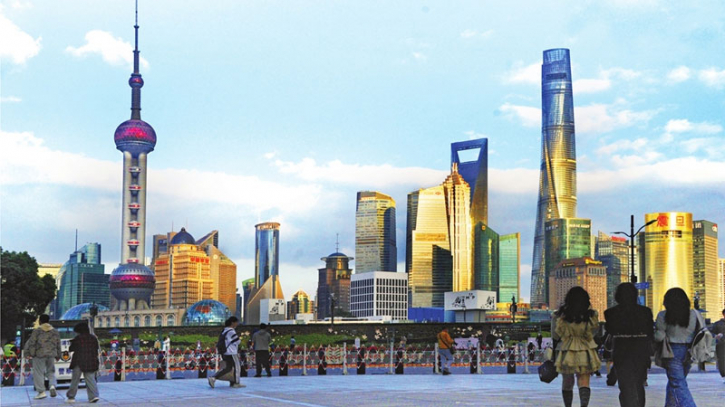Foreign businesses have been pulling money out of China at a faster rate than they have been putting it in, official data shows.
The country’s slowing economy, low interest rates and a geopolitical tussle with the US have sparked doubt about its economic potential.
All eyes will be on a crucial meeting between Chinese leader Xi Jinping and US President Joe Biden this week.
But businesses appear to be already erring on the side of caution.
“Anxieties around geopolitical risk, domestic policy uncertainty and slower growth are pushing companies to think about alternative markets,” says Nick Marro from the Economist Intelligence Unit (EIU).
China recorded a deficit of $11.8bn (£9.6bn) in foreign investment in the three months to the end of September – the first time since records began in 1998.
This suggests that foreign companies are not reinvesting their profits in China, rather they are moving the money out of the country.
China needs to make ‘corrections’
“China is currently facing slower growth and needs to make some corrections,” says a spokesperson for the Swiss industrial machinery manufacturer Oerlikon, which pulled 250m francs ($277m; £227m) from China last year.
“In 2022, we were one of the first companies to transparently communicate that we expect the economic slowdown in China to impact our business,” the spokesperson adds. “Consequently, we began early to implement actions and measures to mitigate these effects.”
China remains a key market for the firm. It has close to 2,000 employees across the country, which accounts for more than a third of its sales.
Oerlikon noted that the Chinese economy was still expected to post growth of around 5% in the next few years, “which is among the highest in the world.”
Since the onset of the pandemic, businesses like Oerlikon have contended with the challenges of operating in what is the world’s biggest market.
China had implemented one of the world’s strictest pandemic lockdowns through its “zero-Covid” policy.
This caused disruptions to the supply chains of many companies, such as technology giant Apple, which makes most of its iPhones in China. The firm has since diversified its supply chain by moving some production to India.
Mr Marro believes more companies have heeded calls for diversification this year, as tensions between China and the US rose with fresh export restrictions on raw materials and technology needed to make advanced chips.
“We aren’t seeing many companies pulling out of China. Many of the big multinational firms have been in the market for decades, and they’re not willing to give up market share that they’ve spent 20, 30 or 40 years cultivating. But in terms of new investment, in particular, we are seeing a reassessment.”
Source: BBC


Comments are closed.